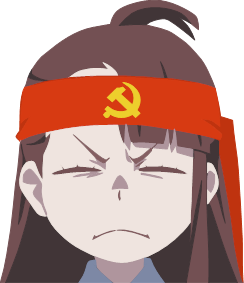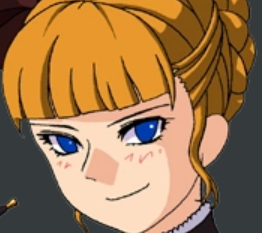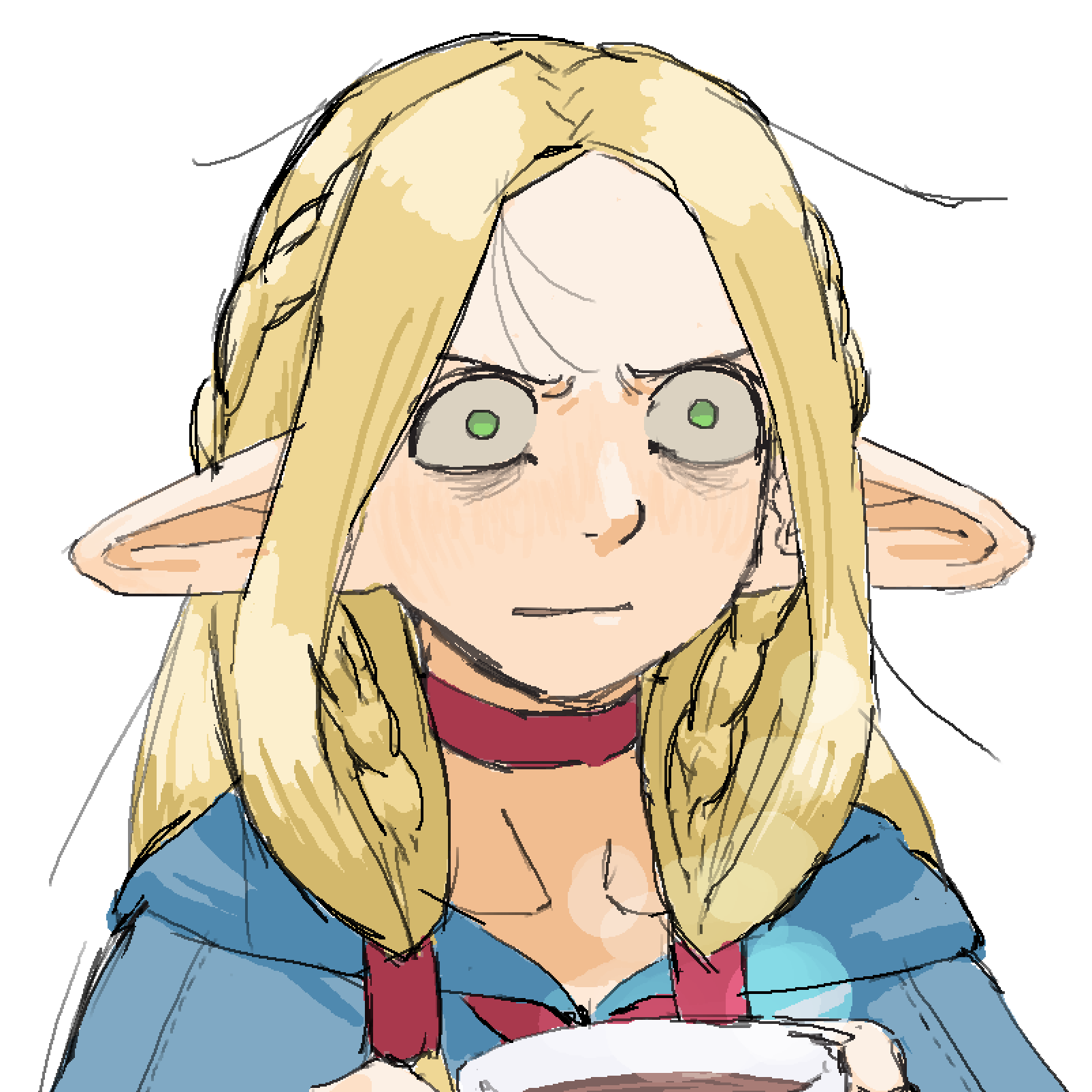Someone tell me what it was about. In particular, what does all the various symbolism mean, what are we supposed to take away from Mikage’s arc, what’s the deal with Kozue, and why did Nanami turn into a cow that one time.
Impossible difficulty: explain Miki’s stopwatch.
there’s too much symbolism to get into all of it here, but i’ll go over some of the big ones. most symbols have multiple meanings or interpretations, but i’ll stick to the main ones.
- flowers are a huge deal, specifically roses. in duels there’s the obvious metaphor for penetrative sex, and all the baggage that carries. when they show up in the corner or as part of a frame they usually are associated color wise with one of the characters in that scene, often to indicate that they’re being Main Character-y for lack of a better term. flirting, looking cool, making an entrance. obviously not universal, but that’s a rule of thumb that i’m pretty sure is accurate most of the time. outside that, colors are generally meant to represent things associated with the character of that color. for example, if there’s a lot of orange on screen there’s probably some unrequited love going on even if juri isn’t around.
- cars, and other methods of tranportation. represent masculinity and adulthood, as well as sex and other things that are commonly linked similarly in modern culture and in fiction. you make out in your car before you have your first time which makes you a man, etc. i wrote something previously somewhere about the car symbolism but i can’t find it. but basically what i had to say was the car represents the impossible standards of toxic masculinity as made obvious in the scenes with touga. he’s inviting others to ride in the car, because he’s the pinnacle of masculinity among the students, as is clear from him winning against utena in the first arc. he’s what saionji and to a lesser extent all the other characters want to be, he’s student council president and is the most powerful character. but he can’t actually live up to all that, so when he has to make his own moves without akio’s support he instead has a much lamer bike with a sidecar. theres a lot more you could read into that re: his relationship with saionji, but i’ll cut this short here.
- cars aren’t entirely negative though. they also represent freedom, as made clear in the movie, though i won’t go farther since you didn’t say if you’d seen that.
- touga’s carrot represents his penis (bet that one slipped by you. it’s super subtle and you need a massive brain to understand what him posing like that means)
- coffins represent being trapped within your fear of death, or just being trapped in htori where you’ll never age. lots of things around ohtori are shaped like coffins, or in ways that the camera can frame them as coffin shaped. you can only break out of your coffin by accepting that going into the painful unknown is better than staying behind, which is what happens to anthy in the last episode. utena breaks through the coffin and anthy realizes that the real world is worth living in and is finally able to leave akio, and therefore ohtori academy
- the animals represent the fact that it’s funny when animals do things you wouldn’t normally expect them to. i’ll go into more detail on this when discussing nanami, where i’ll break down the meanings of her comedy episodes.
- other symbols i can’t get into include gardens, the statues, chuchu, and the hair styling choices of the character designers.
i’ll stop here for this post and continue with an explanaation of mikage (which will hopefully be shorter!)
mikage’s whole deal is (imo) pretty simple. he is what happens when you try to work within the system. whether that system is our real world patriarchy, capitalism, or akio’s dueling games, there’s no way to win by playing by the rules. even when he tries to cheat, the system can absorb that, as shown by utena defeating every duelist in that arc very easily (outside wakaba, which is a whole can of worms i do not have time to get into) and at the end he’s erased completely. it also links back thematically to miki’s plotline, where mikage is seeing a fake version of mamiya, the real one having been replaced (as so many characters are) by an idealized image, always represented by anthy but here actually her in disguise, making the comparison even more clear. (iirc if you look at miki’s flashback’s he’s replaced kozue’s hairstyle with anthy’s)
it’s also when the true nature of ohtori academy as an eternal hotel california style garden becomes clear. tokiko leaves and ages, mikage stays and as such is incapable of growing beyond the person he was back then. it’s only by escaping the frameworks and expectations imposed on us by society that we can truly become free. at the end of the series anthy has managed this, and (we hope) so has utena.
considering i said he was simple, he did have 3 separate points of importance i felt it was important to dig into, and he obviously has more (and you can go more in depth on all the points i make here of course). says something about this show that that’s simple
next up, kozue!
in utena there are 3 brother sister pairs in the main cast. but really, they’re all the same. on some level they’ve all got some incest going on, and the level of said incest kind of maps onto their positions. miki and kozue only really have vibes going on, nothing explicit. there isn’t any real abuse going on, though the relationship is clearly unhealthy and both parties would strongly benefit from having friends apart from each other (and miki clearly does as shown by the badminton scene, which is a scene i just really love so much). miki idealizes the past in ways similar to how both akio/anthy and nanami do repeatedly. kozue as well, but less so.
then we get to nanami and touga. touga is clearly abusive towards nanami, having been manipulating her in ways that are borderline incestuous since before the series started, and shifting into more a abusive (and more incestuous) mode of interaction as the series goes on. i’ll have more to say on this when discussing nanami turning into a cow, but for now i’ll just say that these 2 relationships are (thematically at least, if not literally) what the akio/anthy relationship looked like at various points in the past. kozue and miki are codependent, but miki both wants to shelter kozue from what he perceives as threats, but also blames her to an extent for being the whore to the madonna he remembers from childhood, and sees in anthy now. i’ve always been curious how he would have reacted to seeing anthy how nanami did. meanwhile touga is trying to ramp up the abuse to the levels of constant sexual assault found in his mentor’s relationship, while trying to groom miki (as well as kind of saionji, but he’s on much more equl footing with saionji) in ways similar to how he has been groomed by akio. as awful as the stuff he does is, it’s easy to forget that touga is also a child, even if he’s older than those he abuses. if nanami didn’t have the example of anthy to show that this sort of relationship is actually awful to live in she might not have resisted touga in that car. or maybe she would have! hard to say. but that’s a good segway into the next topic, so i’ll cap things off there for this comment.
how much could she have to say about the thematic importance of nanami turning into a cow you ask? well now you shall see.
there are 5 nanami episodes. nanami episodes are not to be confused with her duels, which are also good, but not what we’re talking about here. nanami episodes involve funny animals tormenting her, presumably as punishment for that one time she drowned a kitten (despite this nanami is still my favorite character). the first nanami episode is entirely mundane. anthy is just too weird for nanami to embarrass when she can’t sexually humiliate her in front of a massive crowd (which is a huge trigger for anthy, but nanami couldn’t have known that). there’s definitely some meaning here, but it doesn’t seem worth it to analyze so deeply here. the next one is weird, but also mostly not relevant to what i’m talking about here. obviously tsuwabuki’s whole deal has a lot of thematic relevance to the aforementioned fucked up sibling dynamics and the broader statements on gender roles to be found within utena, but if i chased every available tangent i’d be here all night. the curry bodyswap is the first nanami episode to clearly have a message directed from anthy to someone else (anthy’s witch magic being responsible) but it’s aimed at saionji. the rose bride is a perfect woman who would never reject a man, so she needs to put utena in a position to break saionji’s heart for her in the hilarious exchange diary scene.
anyways the last 2 nanami episodes (not counting the recap episode) are the thematically super important ones. though 4 out of 5 nanami episodes are for sure anthy fucking with nanami, these 2 come with additional messages. nanami turns into a cow because she is so enamored with her own status that she’s blinded to the realities around her. the reality of the cowbell is ignored because of the associated prestige. similarly, the fact that her relationship with touga grants her immense privilege within the school blinds her to his predatory treatment of her. This is made literal with the cow thing, as the song playing makes clear. (it’s about selling a cow to be slaughtered, and predates utena by a while, being a yiddish folk song.) anthy recognizes herself within nanami and moves to warn her. but her warning is, seemingly, completely ignored. in fact nanami did listen, if only subconsciously, and recognizes herself in anthy in her last (2 part) duel episode.
and then the last one is the egg episode. the egg represents coming into womanhood, your period, elegance, learning things about yourself (it isn’t a coincidence that this episode prompts the bit where touga thinks nanami is coming out as gay to him.) it’s also the episode where nanami truly starts to recognize her position in life and how precarious it is. whereas in the past her flights of fancy were optimistic (for her at least. anthy being outed as a weirdo who keeps snails in her pencil case, etc.) now she is terrified of being abandoned for being a weirdo who lays eggs. or who doesn’t lay eggs early enough. her dreams will be destroyed by her brother, and it’s only a short while before this happens in a more permanent way. all her anxieties are things she previous wished on anthy, which reflects anthy’s role as a sin eater, but also shows how all girls are the rose bride in some way. no matter how hard she pushes others down, nanami is no safer, and she’s starting to realize this in time for her whole world to all come crashing down around her.
anyways let it never be said cromalin lastname is a woman who backs down from a challenge. i had a thing written up on this website about miki’s watch, but now i can’t find it. either it fell away into the sands of time or the search function is acting up again. either way, i’ll just copy what ikuhara (the director/showrunner) had to say on the matter real quick
interview
super secret true meaning
a lot of the time it actually shows a bunch of number puns. nana is 7 and mi can be 3, so when nanami comes in it gets stopped on 73
beyond just that interview empty movement is just a great resource for utena stuff, whether you want to read fan interpretations like i just wrote out here, see archived fan works such as doujin, read translations of interviews and official materials (including the light novels, written by the head writer of currently airing “utena in space” anime gundam witch from mercury, in which touga and miki have sex among other things), or watch occasional livestreams of the musicals (which are very fun). check it out! they’ve been going for over 20 years now, and they’re one of the last vestiges of early internet anime fandom still being updated.
This was an excellent post. Thank you.
:hero-of-socialist-labor:
You went above and beyond, comrade, and I thank you deeply for a wonderful series of effortposts.
this is 3 pages in google docs. on the bright side i can just post it to my tumblr now and get tasty engagement hopefully
Omnomnom, people paying attention to me :xok:




